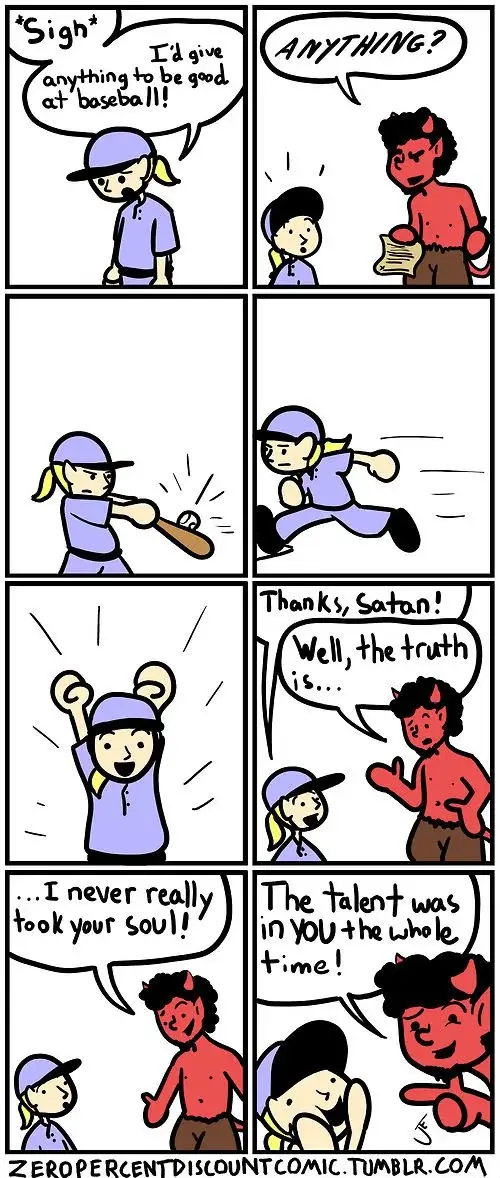this post was submitted on 04 Mar 2024
1068 points (96.6% liked)
Comic Strips
12550 readers
4073 users here now
Comic Strips is a community for those who love comic stories.
The rules are simple:
- The post can be a single image, an image gallery, or a link to a specific comic hosted on another site (the author's website, for instance).
- The comic must be a complete story.
- If it is an external link, it must be to a specific story, not to the root of the site.
- You may post comics from others or your own.
- If you are posting a comic of your own, a maximum of one per week is allowed (I know, your comics are great, but this rule helps avoid spam).
- The comic can be in any language, but if it's not in English, OP must include an English translation in the post's 'body' field (note: you don't need to select a specific language when posting a comic).
- Politeness.
- Adult content is not allowed. This community aims to be fun for people of all ages.
Web of links
- !linuxmemes@lemmy.world: "I use Arch btw"
- !memes@lemmy.world: memes (you don't say!)
founded 1 year ago
MODERATORS
you are viewing a single comment's thread
view the rest of the comments
view the rest of the comments

It wasn't a global flood. It was hyperbole. 2 Peter 2:5 says it just covered the world of the ungodly. "World" is generally used locally in the Bible as well as "the earth" meaning a large area of visible land.
We can see that in Genesis 8:9
"But the dove found no place to set her foot, and she returned to him to the ark, for the waters were still on the face of the whole earth. So he put out his hand and took her and brought her into the ark with him."
When verse 5 said:
"And the waters continued to abate until the tenth month; in the tenth month, on the first day of the month, the tops of the mountains were seen."
I do not care how local you think the myth of Noah's Flood was supposed to be, as that fact is immaterial to the point you continue to miss. That flood still would have killed innocent people, and the story frames this as a morally just action. No amount of quibbling over linguistics will change that.
The amount of excuses needed to ignore the plain implications of a passage is really telling. One could take the Old Testament as it appears: a series of books written and edited (and redacted, and co-opted, and edited again) as the religious and cultural canon in the Iron Age for an otherwise obscure Levantine tribe, with morals from a different time and place unsuited to our modern sensibilities. There are many such books and traditions from all over the world that contain tales just as horrifying as any in the Old Testament, so it would not be without company.
But the apologist wants us to believe that their ancient stories are actually true, and so they have to invent all these insane reasons why clearly immoral actions by their book's main character are totally justified. This is the sort of position that can only come about when someone decides what they believe first and then looks for rationale afterwards.
It didn't kill innocent people, though.
You have yet to satisfactorily establish that. The most you've mustered is claiming that Jehovah would have known his victims were guilty and so was was justified in killing them. This excuse only works if one starts from a position of, "Jehovah is good", and then finds justification for his actions afterwards. In every other instance we would judge people by their actions, yet you want to make a special exception for your god where we reverse the calculus and judge his actions by his person instead.
I reject this backwards logic, and still conclude that the god of the Old Testament is a vindictive, bloodthirsty character, much more in line with his Iron Age contemporaries than with any modern conception of a god. This is one of the fundamental flaws of Christianity: that its god cannot be separated from its narrow, barbaric past, and thus cannot be easily squared with what is expected of a universal deity.